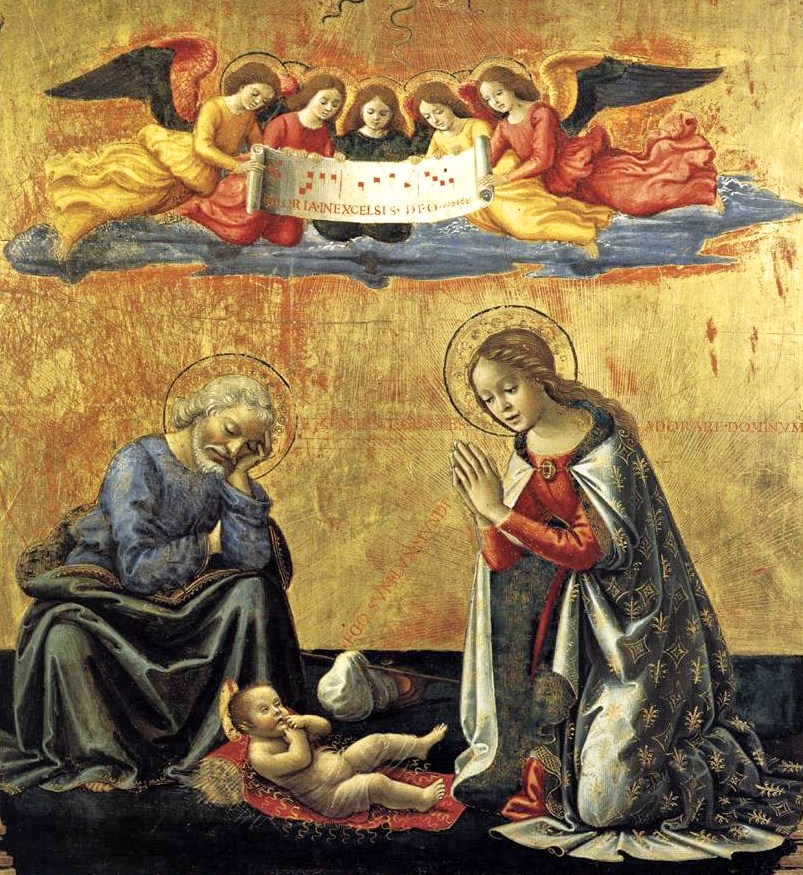This Week in Classical Music: December 23, 2024. Christmas. While this is not the time to read boring entries about composers and performers, it’s definitely worth listening to some good music of the season (and we don’t mean the tiresome Christmas carols).Georg Philipp Telemann wrote some very good music.His output was enormous, and naturally, some compositions were better than others.He wrote around 1,700 cantatas (yes, this is not a misprint), of which 1,400 are extant; among those are several Christmas cantatas.He also wrote many oratorios of different sorts: Passion oratorios (starting in 1722 he wrote a St Matthew Passion oratorio every four years – Bach, as we know, wrote just one, but of a different caliber), other sacred oratorios and secular ones as well.Inevitably, there was music for Christmas, for example, the oratorio Die Hirten an der Krippe zu Bethlehem (“The Shepherds at the Crib in Bethlehem”), which Telemann composed in 1759.By then, his friend Johann Sebastian Bach had been dead for nine years, the Classical style was in vogue and contemporary critics considered Telemann’s (as well as Bach’s) music outdated.But as we listen to it today, it becomes apparent that this oratorio is a wonderful piece, and, while not as grand as Bach’s Christmas Oratorio, it is colorful, inventive and charming on a smaller scale.You can listen to it here. Ludger Rémy conducts the Telemann-Kammerorchester (Telemann Chamber Orchestra), Kammerchor Michaelstein and the soloists.The recording was made in the Michaelstein Abbey (Kloster Michaelstein in German) in 1996.The abbey was founded in the 10th century and now houses a music institute.
Christmas, 2024
This Week in Classical Music: December 23, 2024. Christmas. While this is not the time to read boring entries about composers and performers, it’s definitely worth listening to some good music of the season (and we don’t mean the tiresome Christmas carols). Georg Philipp Telemann wrote some very good music. His output was enormous, and naturally, some compositions were better than others. He wrote around 1,700 cantatas (yes, this is not a misprint), of which 1,400 are extant; among those are several Christmas cantatas. He also wrote many oratorios of different sorts: Passion oratorios (starting in 1722 he wrote a St Matthew Passion oratorio every four years – Bach, as we know, wrote just one, but of a different caliber), other sacred oratorios and secular ones as well. Inevitably, there was music for Christmas, for example, the oratorio Die Hirten an der Krippe zu Bethlehem (“The Shepherds at the Crib in Bethlehem”), which Telemann composed in 1759. By then, his friend Johann Sebastian Bach had been dead for nine years, the Classical style was in vogue and contemporary critics considered Telemann’s (as well as Bach’s) music outdated. But as we listen to it today, it becomes apparent that this oratorio is a wonderful piece, and, while not as grand as Bach’s Christmas Oratorio, it is colorful, inventive and charming on a smaller scale. You can listen to it here. Ludger Rémy conducts the Telemann-Kammerorchester (Telemann Chamber Orchestra), Kammerchor Michaelstein and the soloists. The recording was made in the Michaelstein Abbey (Kloster Michaelstein in German) in 1996. The abbey was founded in the 10th century and now houses a music institute.
music of the season (and we don’t mean the tiresome Christmas carols). Georg Philipp Telemann wrote some very good music. His output was enormous, and naturally, some compositions were better than others. He wrote around 1,700 cantatas (yes, this is not a misprint), of which 1,400 are extant; among those are several Christmas cantatas. He also wrote many oratorios of different sorts: Passion oratorios (starting in 1722 he wrote a St Matthew Passion oratorio every four years – Bach, as we know, wrote just one, but of a different caliber), other sacred oratorios and secular ones as well. Inevitably, there was music for Christmas, for example, the oratorio Die Hirten an der Krippe zu Bethlehem (“The Shepherds at the Crib in Bethlehem”), which Telemann composed in 1759. By then, his friend Johann Sebastian Bach had been dead for nine years, the Classical style was in vogue and contemporary critics considered Telemann’s (as well as Bach’s) music outdated. But as we listen to it today, it becomes apparent that this oratorio is a wonderful piece, and, while not as grand as Bach’s Christmas Oratorio, it is colorful, inventive and charming on a smaller scale. You can listen to it here. Ludger Rémy conducts the Telemann-Kammerorchester (Telemann Chamber Orchestra), Kammerchor Michaelstein and the soloists. The recording was made in the Michaelstein Abbey (Kloster Michaelstein in German) in 1996. The abbey was founded in the 10th century and now houses a music institute.